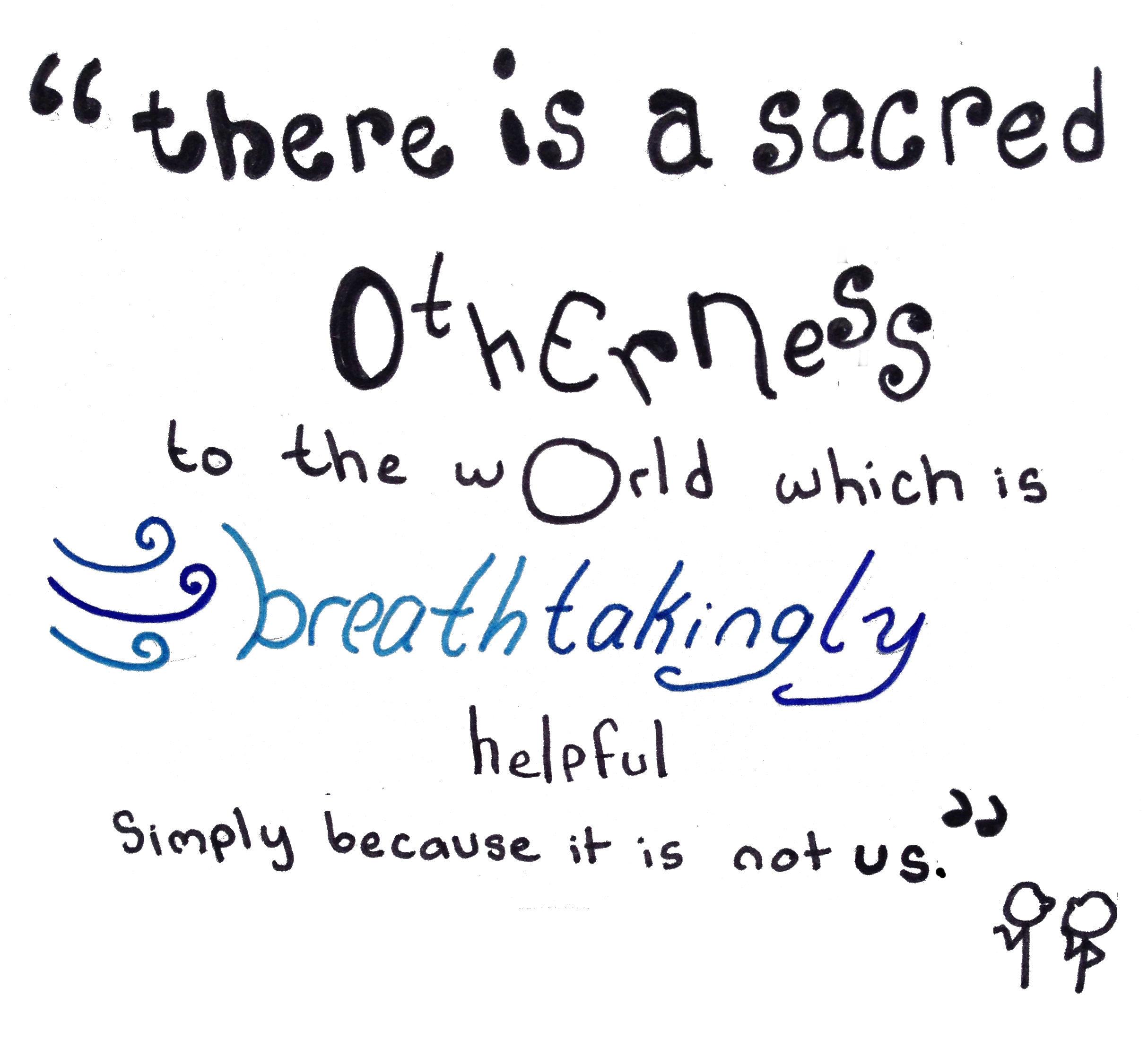The World Also Has a Soul

IMAGE OF THE WEEK

"There is a core delusion at the center of our struggles in all organizations. A core delusion that narrows our sense of self and ignores the greater world beyond the organization. It is a world that can inform us of our personal destiny, but also a world that we have lost the time and inclination to investigate thoroughly. Trying to ignore this greater world, we forge a small identity held within the narrow corridors of the building in which we work. Rather than breathing life and vitality into work from the greater perspective which is our birthright, we allow our dreams and desires to be constricted and replaced by those of the organization and then wonder why it has such a stranglehold on our lives."
"The first step to preserving the soul in our individual lives is to admit that the world has a soul also, and is somehow participating with us in our work and destiny. That there is a sacred otherness to the world which is breathtakingly helpful simply because it is not us; it is not defined by our human worries and preoccupations, and it never will be. Its refusal to concern itself solely with our personal ambitions is its greatest mercy; it reserves itself for another kind of nourishment, one we come to when we are ready to drop our reflexive self-concern and look beyond our exhausting self-importance. As the poet David Ignatow reminds himself:
'I should be content
to look at a mountain
for what it is
and not as a comment of my life.
"Looking at the mountain for it own sake opens up a life that can be descried only in the numinous effulgence of poetry or the self-forgetfulness of vital prose. This self-forgetfulness is the essence of firsthand experience. We no longer see our experience as useful for getting something out of someone else, or getting us quickly somewhere else, but as the primary touchstone of both our individuality and the strange way our individuality depends upon everything else. In such experience there is nowhere to go because the experience of interdependence is complete in itself. This experience of belonging satisfies a primary hunger that lies at the center of our soul life; it holds both restful and fiery qualities simultaneously, it is not an easy out.
Taking the first vulnerable steps into our own experience, no matter how small or hidden at the beginning, opens us to a more generous life, where what we have to give figures as largely as what we receive. We stop trying to draw infinitely from a finite world and begin to learn how little is necessary to live a life that honors the soul of the world. We learn that in many respects our world works as a partner, sometimes friendly, sometimes terrifying, but always true to its own necessities and by its example drawing us toward our own.
SEED QUESTIONS FOR REFLECTION: How do you relate to the notion that the world also has a soul? Can you share a personal experience where you felt the soul of the world, that it was a partner in your life? How do we practice being true to our own necessities?